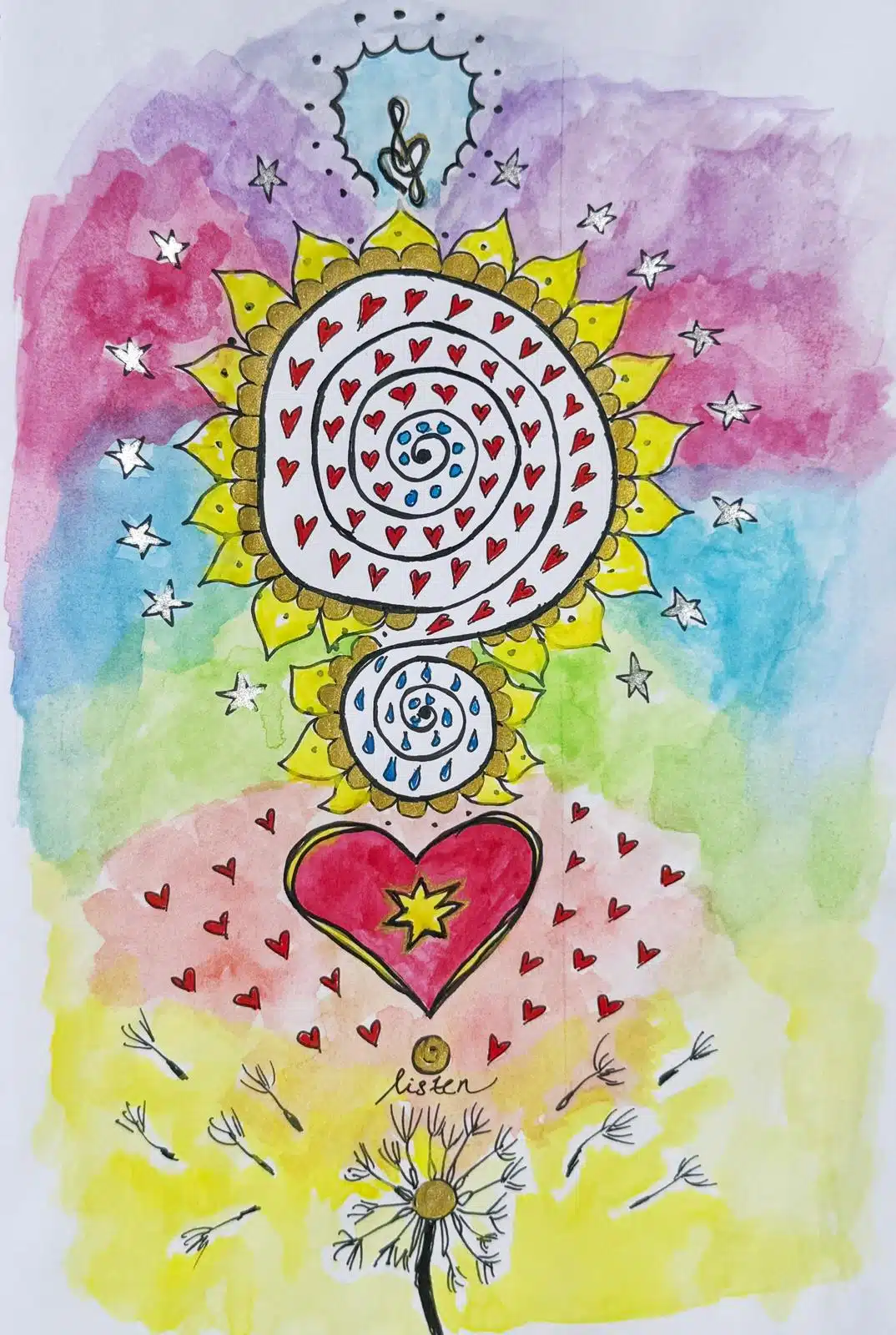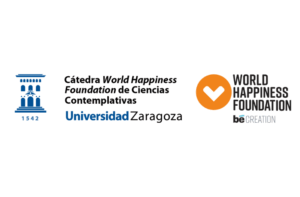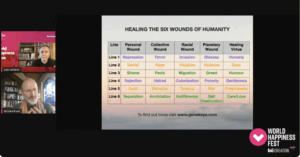
Happytalism and the 2025 Doha Political Declaration: A Paradigm Shift for Social Transformation
Executive Summary The Doha Political Declaration adopted at the 2025

Picture Painting by Katarina Baliova
We’ve spent centuries celebrating independence—of nations, of markets, of individuals. Independence helped us escape tyrannies, spark innovation, and claim equal rights. But the story is incomplete. On a planet where everything is connected, independence without interdependence leads to loneliness, polarization, ecological overshoot, and fragile institutions.
Interdependence is not the opposite of freedom; it’s the maturing of freedom. It’s the shift from “I’m free from you” to “We are free with and for each other.” And it sits at the heart of Happytalism—a paradigm that orients economies, organizations, and cultures around freedom, consciousness, and happiness for all.
This article offers a practical roadmap to move from independence to interdependence—within ourselves, our communities, and our systems.
Interdependence is the balance of autonomy and mutuality. It’s different from dependence (losing agency) and from codependence (losing boundaries). Interdependence says: I bring my gifts and dignity; you bring yours; together we create more value and well-being than any of us could alone.
In systems terms, think “nested wholeness”: Self → Community → Nature. Decisions that honor all three create durable prosperity and peace—the core promise of Happytalism.
Happytalism asks one clarifying question of every policy, product, and practice: Does this increase freedom, consciousness, and happiness for all—without excluding anyone or harming nature?
It reframes value creation through five outcomes:
Interdependence begins within.
Small, consistent groups are the engine of culture change.
Happytalism operationalizes interdependence in institutions.
Establish a Chief Well-Being Officer or well-being council with real budget and board access.
Run an Interdependence Scorecard each quarter: well-being, trust, time-use, inclusion, pay equity, and environmental footprint.
Build co-creation loops with employees, customers, and suppliers (listening systems, design sprints, shared KPIs).
Teach social-emotional mastery alongside literacy.
Student councils co-govern parts of the school day.
Track joy-of-learning, belonging, and teacher flourishing—not just test scores.
Use well-being dashboards to guide budgets.
Convene citizens’ assemblies for complex trade-offs.
Prioritize 15-minute neighborhoods, safe public spaces, and green corridors that invite connection.
Keep the parades and music—and add rituals that renew our social contract:
Happytalism’s leadership stance fits neatly with the ROUSER model:
Look for these signals:
Independence gave us wings. Interdependence gives us direction.
Happytalism invites us to upgrade our operating system—from scarcity and separation to care, co‑creation, and regeneration. Start with one circle, one practice, one small win. Share your learning so others can adapt it. That’s how paradigms shift: not all at once, but everywhere at the same time.
Let’s make the next chapter of freedom a shared one—so that self, community, and nature can flourish together.
With joy, Luis Miguel Gallardo Author of The Meta Pets Method | PhD Scholar| Professor of Practice Yogananda School of Spirituality and Happiness | Founder, World Happiness Foundation | Author, Unlocking the Hidden Light
#ShooliniUniversity #PhDJourney #ProfessorOfPractice #Hypnotherapy #EasternWisdom #WesternScience #SpiritualPsychology #ShivDhar #SoulfulLeadership #NatureHeals #YoganandaSchool #Himalayas #NonDuality #MetaPets #UnlockingTheHiddenLight
Explore the future of leadership:
Join our Alchemy of Leadership Program: https://www.worldhappinessacademy.org/offers/ezL8GGWJ
Join our community of Global Well-Being and Impact Leaders:
Apply here: Global Well-Being and Impact Leadership Certification – Application Page
Join us in this bold journey. Let’s champion a new paradigm of leadership together – one where happiness, well-being, and impact are at the heart of every strategy and every action.
Become a part of GWILC and help realize the vision of a world where everyone, everywhere can thrive in freedom, consciousness, and happiness. The next seven years of global leadership evolution start now – and we invite you to lead the way.
#LeadWithWellBeing #GWILC #Happytalism #GlobalLeadership #WorldHappiness
Join the Chief Well-Being Officer Program: https://www.worldhappinessacademy.org/english-chief-well-being-officer
….join the Cities of Happiness Initiative: https://www.teohlab.com/city-of-happiness
Unlocking the Hidden Light book: https://a.co/d/gaYuQJ6
Join the pull of Mental Health Professionals ready to help addressing trauma and nurturing collective well-being: https://forms.gle/39bGqU177yWcyhSUA
Join the community of catalysts of positive transformation: https://www.worldhappiness.academy/bundles/certified-chief-well-being-officer-professional-coach
Enjoy a free 30-minute coaching session with me. Book it here: https://www.worldhappiness.academy/courses/coaching-and-hypnotherapy-with-luis-gallardo
Link to Meta Pets Coloring Book
For more information and to join the movement, visit World Happiness Foundation.
#WorldHappinessFest #Happytalism #GlobalHappiness #WellBeing #Sustainability #ConsciousLiving #WorldHappinessFoundation #FreedomAndHappiness #GlobalWellBeing
Jaipur Rugs Jaipur Rugs Foundation Upasana Design Studio World Happiness Fest – bēCREATION World Happiness Academy University for Peace (UPEACE) – UN Mandated UPEACE Centre for Executive Education Saamdu Chetri Manas Kumar Mandal Dr. Rekhi Singh REKHI FOUNDATION FOR HAPPINESS Adamas University Shoolini University Saamdu Chetri Vibha Tara Manas Kumar Mandal Prof. (Dr.) Shauli Mukherjee Paulina Nava Villazon Michelle Taminato

Executive Summary The Doha Political Declaration adopted at the 2025

Introduction: Science and Spiritual Wisdom United for Peace Every year

Humanity carries deep core wounds that have shaped our personal